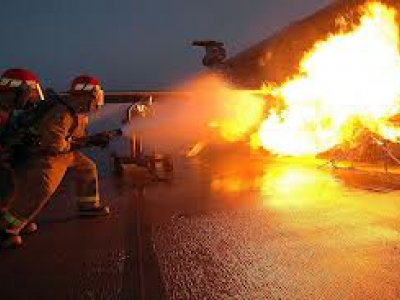Riyadh MoU from 1 October to 31 December 2014 addresses compliance with SOLAS II-2 and FSS Code
Fire safety systems and the state of fire fighting equipment on board vessels have been the subject of both a Concentrated Inspection Campaign (CIC) by the Riyadh MoU this year, as well as commentary by the US Coast Guard. The Skuld P&I Club gives an overview of these current CIC as well as loss prevention advice to operators for fire safety onbaord.
Fire fighting at sea
Thucydides has been reputed to have said, “A collision at sea can ruin your entire day”, but he may have expanded on this to add that a fire at sea is the worst day of them all.
It may seem paradoxical to a lay person that a vessel surrounded by water should fear fire, but every seafarer knows that fires on board ships can be very difficult and quickly lead to very tragic consequences. A situation the Association is very keenly familiar with following the events on the MS Scandinavian Star in 1990.
Port State Control authorities take the matter of fire safety on board vessels very seriously, and it is therefore not surprising to see developments in this regard from both two MoUs as well as the United States Coast Guard.
Riyadh MoU CIC
The authorities of the Riyadh MoU on Port State Control have been running a Concentrated Inspection Campaign (CIC) exercise since 1 October 2014 until 31 December 2014. The purpose for this exercise is to address the compliance with SOLAS Chapter II-2 and the International Code for Fire Safety Systems (FSS Code).
During the CIC exercise, the Port State Control officers will be using an additional checklist particularly looking at the following areas of concern:
- Fire control plan
- Fire detection and alarm systems
- Firefighting appliances and equipment
- Fire suppression systems
- Emergency fire pump and fire main isolation valves
- Escape route lighting
- The planned maintenance system
- Crew’s familiarity with the firefighting systems and appliance
In the event of any deficiencies found, further action may be taken such as the detention of vessel.
Caribbean MoU CIC
US Coast Guard
The USCG reminded shipowners / operators and companies that provide fire safety equipment servicing to use caution when replacing components on hand portable fire extinguishers as there have been incidents whereby the fire extinguisher failed to properly discharge and instead, it only seeped from the neck of the extinguisher. And upon further investigation, it was noted that malfunction was caused by the use of different types of diffuser.
The USCG also advises owners / operators that if based on visual examination of the equipment and believe that there is a possibility of potential blockage, they should contact a qualified fire equipment service company for a thorough examination.
SOLAS amendment
In addition to the above, SOLAS had several amendments come in to effect this year, and one of the amendment is specifically on the communication between fire-fighters on board.
“Amendments to SOLAS regulation II-2/10 on fire-fighting entered into force on 1 July 2014, to require a minimum of two two-way portable radiotelephone apparatus for each fire party for fire fighters’ communication to be carried. The apparatus shall be of an explosion-proof type or intrinsically safe. Ships construction before 1 July 2014 shall comply with the above requirements not later than the first survey after 1 July 2018.”
Skuld P&I Club Loss prevention adviceThe four key components to fire safety of a ship are:
Operators are recommended to ensure that they check this critical issue regularly in line with both ship and shore company procedures. This is an area where constant vigilence and training are absolutely crucial to ensure the continued safety of vessels and all on board. |
Source: The Skuld P&I Club































































